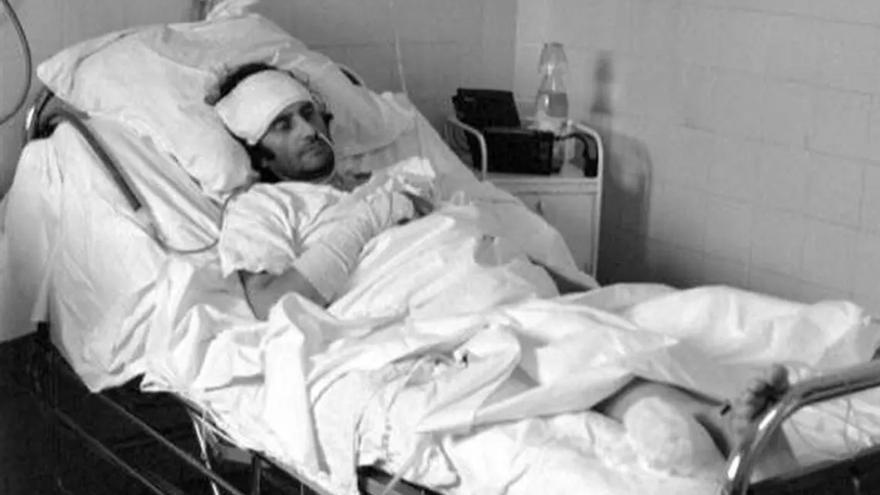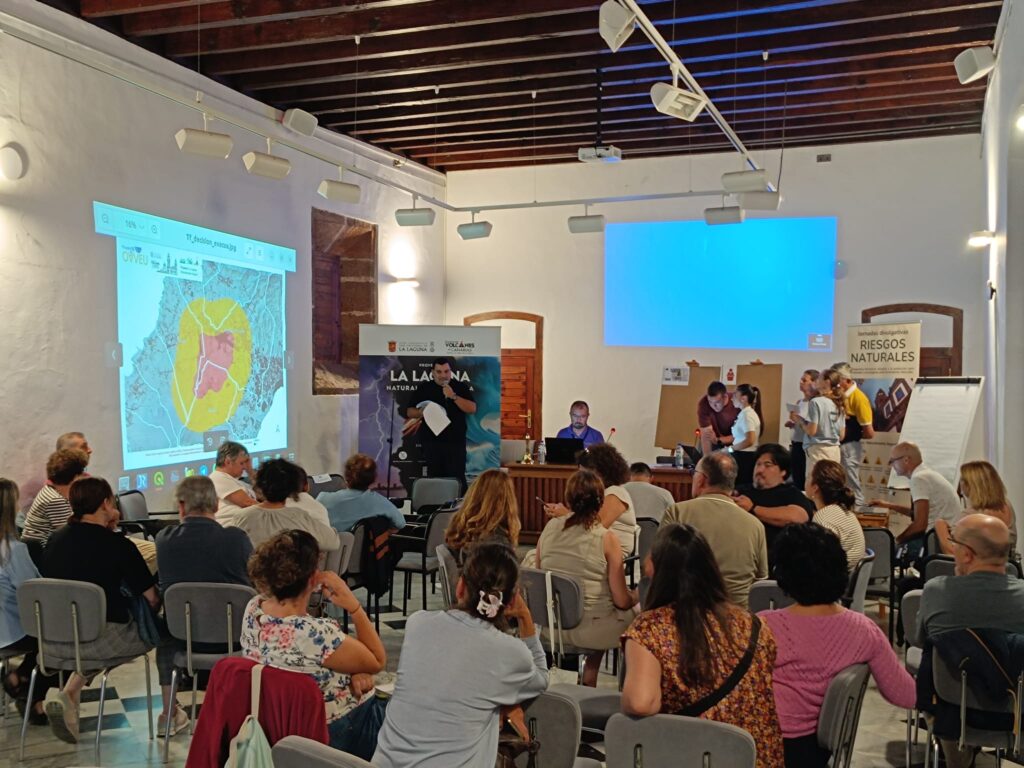
On 5th April 1978, the leader of the Canarian independence movement MPAIAC, Antonio Cubillo, survived a failed assassination attempt at his exiled home in Almuradieh, Algeria. This is the only case recognised by Spanish justice as State terrorism. This Friday marked 46 years since the incident.
Antonio Cubillo (3rd July 1930, La Laguna; 10th December 2012, Santa Cruz de Tenerife) was still alive when the 30th anniversary was commemorated. And he remembered everything. “They seriously damaged my mobility, but they didn’t touch my head,” he said back then.
[–>
The 46th anniversary of the only case in Spain where the justice system handed down firm convictions for State terrorism has just passed. Antonio Cubillo Ferreira, leader of the Movement for the Self-Determination and Independence of the Canary Archipelago (MPAIAC), was seriously injured after being attacked by two mercenaries hired by the Spanish Government.
Cubillo survived, as he himself made clear, “not only because of Okpi’s intervention in the building but also because that afternoon the football match between the Algerian and Hungarian national teams was being televised, and there were hardly any people on the streets. The ambulance was able to evacuate me in time due to the lack of traffic”. “I was really messed up, of course. I’ve been using crutches since then due to partial paralysis. But look, here I am still.”
The independence activists led by Cubillo had opened both political and terrorist paths three years earlier, during a period of high national tension: Franco had died, the country was facing constant murmurs of coup plots, and was completing a complex transition to democracy.
Although the dozens of attacks by the self-proclaimed Guanche Armed Forces were sporadic and mostly resulted in material damage, this activity began to raise concerns among the governing authorities.
Meanwhile, Algeria, outraged by Spain’s decision to sell Western Sahara to Morocco and Mauritania, decided to respond by providing support to the MPAIAC and authorising broadcasts from the radio station La Voz de Canarias Libre, directed by Cubillo from Algiers.
The incident that raised the alarm was the decolonisation process initiated by Cubillo with the support of many states of the Organization of African Unity (OAU). In fact, two days after the failed attack, the MPAIAC leader was scheduled to meet in Rome with the Foreign Minister of Cameroon and then Secretary-General of the OAU, William Eteki Mboumua, to then travel to New York to present the case of the Canary Islands to the UN Decolonization Committee, which was to declare the Archipelago as a “non-self-governing territory”.
“I always say that I was born on 5th April 1978,” commented this lawyer when he was about to turn 78 years old. Antonio Cubillo Ferreira died on 10th December 2012 from natural causes at his home in Santa Cruz de Tenerife. Cubillo Ferreira suffered from various illnesses, some of which stemmed from the attack in Algiers when he led the actions of the MPAIC.
The State attack did not manage to end him, but it was a definitive blow against a separatist movement that was always labelled as fragile, minority, and eccentric. Even after all this time, Cubillo still dreams of that aspiration. He even says he will try to reopen the case at the UN “to initiate decolonisation in 2010”.
In the summer of 1990, José Luis Espinosa Pardo, a police informant recruited by the Spanish Ministry of the Interior, was sentenced by the National Court to 20 years in prison as the mastermind of the failed assassination of Antonio Cubillo, within what was called Operation New Earth.
However, Espinosa did not spend more than six years in prison. He organised it with the support of the German secret services (the German government wanted to defend its interests in the Canaries) and recruited the mercenaries Juan Antonio Alfonso González (former member of the FRAP) and José Luis Cortés Rodríguez.
Both were arrested hours after the attack and tried by the Algerian State Security Council. Alfonso, the perpetrator, was sentenced to death, and Cortés to 20 years in prison. They were later pardoned and, after spending seven years in prison, were released.
Cubillo recalled that Alfonso tried to apologize.During the judicial process. “I heard him but didn’t shake his hand.” Cubillo would have to wait until 2003 for the National Court to approve a compensation in his favour of €150,253 for the terrorist action. He also admitted in an interview that the man who failed in his attempt to assassinate him was “a beggar”..
The documentary Cubillo: A State Crime Story (2012), directed by Eduardo Cubillo, managed to bring face to face for the first time the leader of Canarian independence, Antonio Cubillo, and the man who unsuccessfully tried to kill him on April 5, 1978, Juan Antonio Alfonso. Those who witnessed the face-off claim that the mercenary even asked for forgiveness.
The historic encounter took place on April 8, 2009, just three days after the 31st anniversary of the event that would mark both of them for life. Antonio Cubillo sat face to face with the man who had unsuccessfully attempted to assassinate him, the mercenary recruited by Spanish secret services, Juan Antonio Alfonso González.
[–>
They came face to face after so long in the theatre of Tegueste, during the recording of the aforementioned documentary, produced by La Gaveta Producciones, La Mirada Producciones and Vértigo Laberíntico, which addressed the figure of the Mpaiac leader but, above all, the circumstances surrounding the attempted state attack that prevented Cubillo from appearing before the United Nations a few days later to request the decolonisation of the Canary Islands.
















